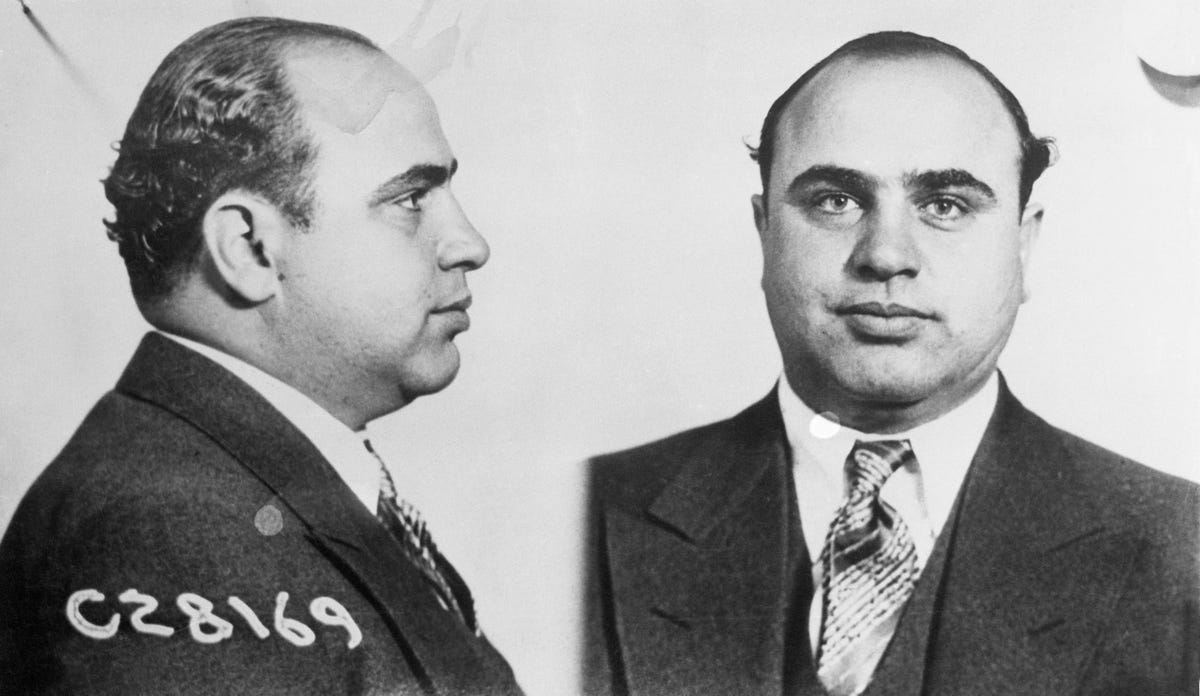Al Capone’s name still echoes through American history as one of the most notorious gangsters to hit the streets of Chicago. His life story and legacy are featured in numerous books and films. Even the City of Chicago cashes in with tourist dollars from daily tours of the local places Capone lived and worked.
But on this day in 1931, Capone’s seven-year reign as a mobster came to an end as he was sentenced to 11 years in a Federal Prison at the young age of 33.
Although authorities tried to gather enough evidence to catch Al Capone for his work with the mafia, especially the Valentine’s Day Massacre, they lacked enough evidence for a conviction. The authorities finally got what they needed when Capone’s business partner and tax man, Edward O’Hare, offered up some info regarding the mobster’s taxes.
His Time in Prison
Shortly after arriving at the Atlanta Penitentiary, Al Capone was diagnosed with gonorrhea and syphilis. To make things even more uncomfortable, he had to detox from cocaine, which had perforated his septum.
Al Capone got a job stitching soles on shoes, but his mental health began to decline. He was seen as weak amongst the other prisoners, and former gang members tried to step in to help. Ultimately, this caused friction, and Capone was transferred to Alcatraz.
His time in Alcatraz was a rollercoaster. While he did earn privileges to play banjo in the prison band The Rock Islanders, it was at this prison where Capone was stabbed by a fellow inmate. His health also continued to deteriorate, and he spent the last year of his time here in the hospital ward.
Early Release
Because of Capone's declining health, he was released from prison early on November 16, 1939. Just a week before that, Edward O’Hare mysteriously died from gunshot wounds while he was driving.
Capone was sent to the Union Memorial Hospital for treatment of syphilitic paresis. He eventually became well enough to return to his house and was one of the first American patients to receive penicillin. Although the drug slowed his disease, it could not undo the effects on his brain, and by 1946, a Baltimore psychiatrist deemed Capone had the mental capacities of a 12-year-old. He lived out his life with his wife and grandchildren until his death on January 25, 1947.

